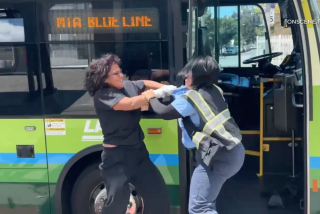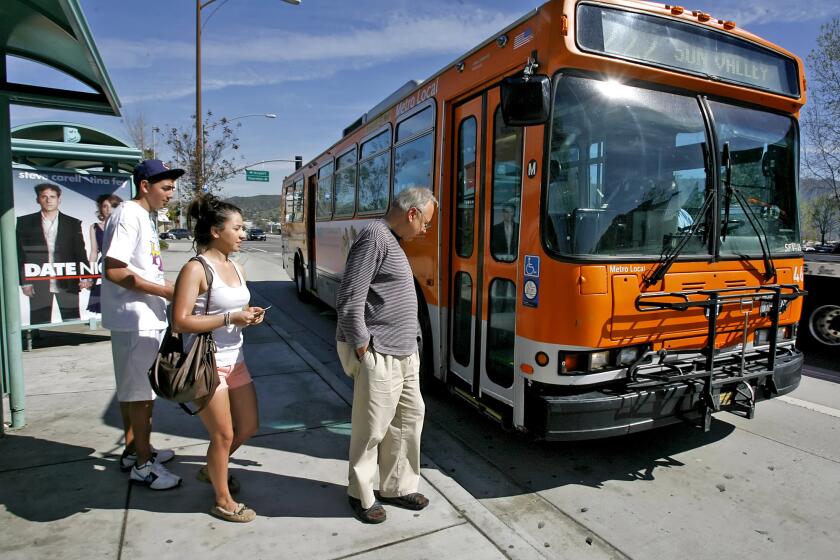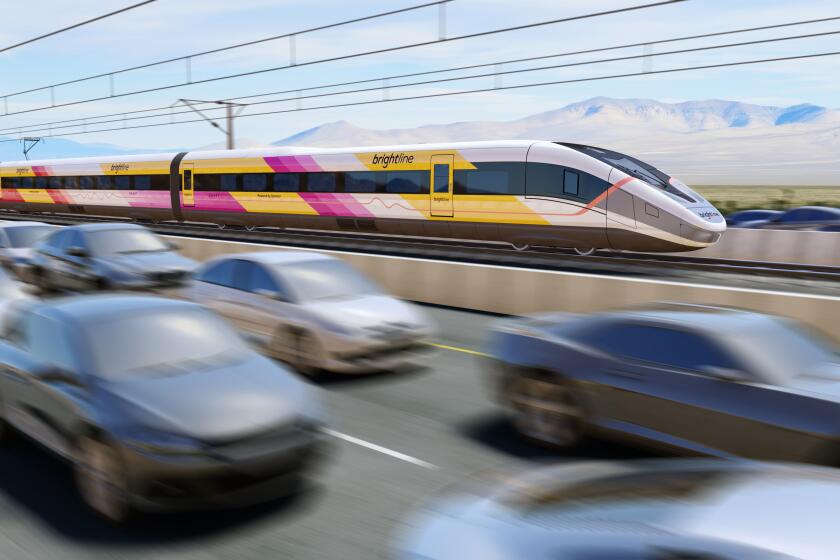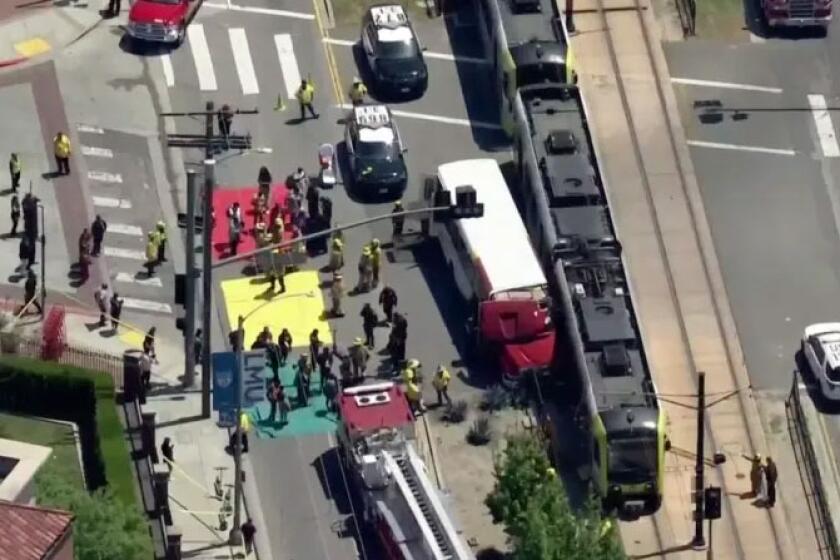Solemn gathering marks anniversary of Metrolink crash
There were no speeches, no poetry, no litany of names.
There were only tears and quiet hugs among the few dozen people gathered Monday at the Simi Valley train station to mark the anniversary of one of the worst rail disasters in U.S. history.
They were waiting for the 4:30 p.m. train from Union Station. Exactly three years earlier, that train, operated by an engineer who was texting on his cellphone, slammed into a freight train in Chatsworth. Twenty-five people were killed and more than 130 were injured.
Photos: Metrolink commuter train crash
Survivors and family members of those who died brought flowers on Monday, placing them at the plaques and simple stone memorials beside the platform. At the stone dedicated to Los Angeles Police Officer Spree DeSha, someone had placed a pair of well-loved slippers and a couple of red carnations. A few people gingerly poked through a cardboard box that held white wooden crosses bearing the names of each victim.
The national remembrance of 9/11 was still in the air — but Barbara Kloster urged people not to forget the tragedy of Metrolink 111.
“Nine/11 wasn’t preventable,” she said. “Nine/12 was.”
Kloster’s son Michael was “nearly cut in half” in the wreck, losing a kidney and suffering massive internal injuries. He may be facing dialysis and, at 51, his life span has been significantly shortened, she said.
Even with his settlement of $7 million — the second highest among those injured — he’ll end up $500,000 in the red after his medical and legal fees, his mother said.
A 1997 federal law — the Amtrak Reform and Accountability Act — caps liability damages for a single railroad accident at $200 million.
That’s at least $64 million less than fair, according to the judge who was charged with determining how much each passenger would receive.
“The list of woes, financial needs and emotional devastation is simply inexplicable,” Los Angeles Superior Court Judge Peter D. Lichtman wrote in his July decision.
Metrolink contracted with French conglomerate Veolia to operate the train.
Veolia executives have disputed federal investigators’ conclusion that engineer Robert Sanchez caused the crash by text-messaging instead of paying attention to warning signals. He had been hired by a Veolia subsidiary.
A conductor had warned the company’s supervisors about Sanchez’s texting but no action was ever taken, according to court records. Sanchez, who died in the wreck, was not part of the settlement.
Members of California’s congressional delegation have futilely urged the company to increase the amount of the settlement, which is to be distributed this fall.
“Veolia basically told us to — forgive me — stick it,” said Albert Nalivansky, whose wife, Marcia, broke her back in eight places.
At 71, Nalivansky has gone back to work as a plumber and moved to a smaller house.
He sat on a bench Monday talking with Andrea Beck.
Like others at the station, they had gotten to know each other over three years of hearings, memorials and “grief groups.”
Nalivansky spoke of the personality change his wife and other survivors have undergone. Beck, a Westlake Village resident who took the last name of her fiance, Charles Beck, after he was killed, sympathized. The two were to be married the week after the crash.
“People just don’t realize the psychological impact on survivors,” Nalivansky said. “I see it every day.”
Photos: Metrolink commuter train crash
More to Read
Start your day right
Sign up for Essential California for news, features and recommendations from the L.A. Times and beyond in your inbox six days a week.
You may occasionally receive promotional content from the Los Angeles Times.







